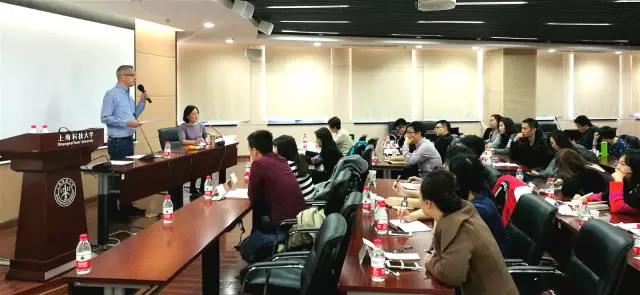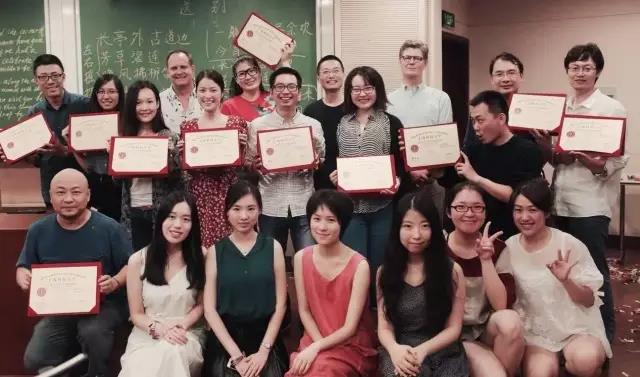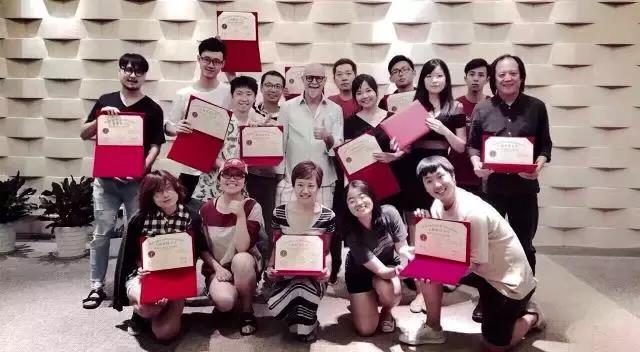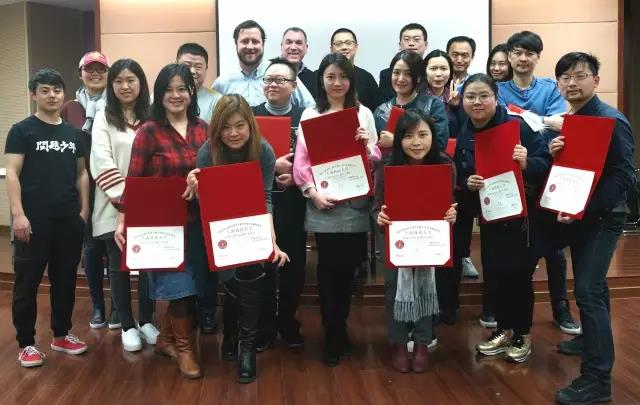The year of 2016 has seen an expedited expansion of the collaboration between ShanghaiTech University and University of Southern California, School of Cinematic Arts, in the non-degree professional trainings in screenwriting, directing and producing. By nurturing both the creative and managerial sides of the film industry, the program has demonstrated its ambition to foster a healthy ecology in the film industry that respects both creativity and industrial protocols.

As the Chinese film market continues to grow, blind spots and weaknesses have arisen. The box office of certain previously profitable genres shrunk, smashing the illusion that such safe bets as romantic comedies and mythological epics would always secure returns. It is observed that the audience has started to have better tastes, which can be immediately reflected in the box office curve. To this end, ShanghaiTech has collaborated with USC SCA to educate the creative managers and the creative talents, in order to produce more solid content diverse in forms and styles.
Towards a Healthier Film Industry
The USC producing tracks is one of the most accomplished producing programs of US film schools and offers antidotes to many of the syndromes arising in Chinese film industry. A producer in its essential sense, is the driving force for a film to be made. It would require the producer to be competent in terms of finding compelling stories, putting together key crew and pushing the projects forward to getting made, and also knowledgeable in financing and distributing.
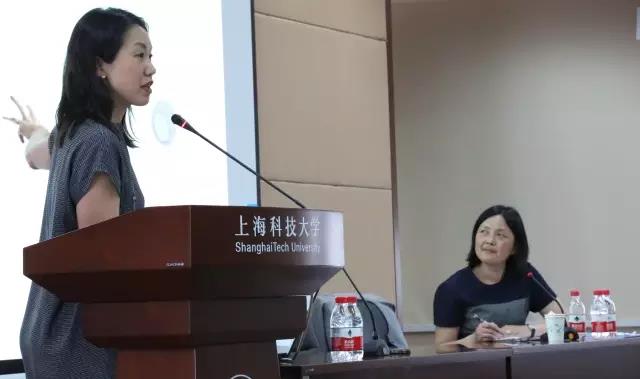
The producing workshop takes a structure of monthly gathering. Starting from April 6th, every month a lecturer presented a three-day lecture on a different aspect to the role of a producer. Among the 32 participants recruited, 50 percent are working producers and studio executives in the field, and 50 percent from investment background. In summer the producing class went to Los Angeles for a week's site visits and classes.

Over the course of 10 months of the program, the class had lectures on topics of development, studio system, production cycles, editing, screenwriting, independent producing, co-production, etc. The lectures invited are of different backgrounds and credentials, including Gail Katz, producer of Perfect Storm (starring George Clooney), Chantal Nong, VP of Warner Brothers Production, Tom Jacobson, former executive/VP of Paramount and 20th Century Fox, Brenda Goodman, senior independent producer, among many others.
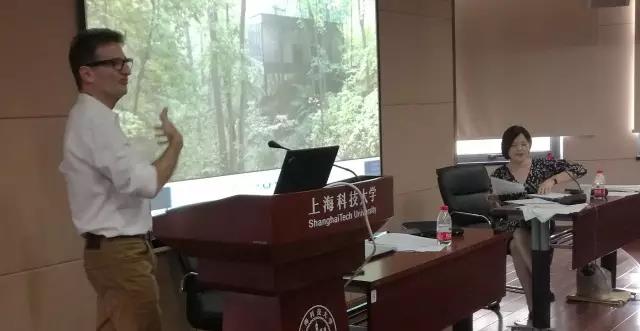
By introducing general frameworks and first-hand case studies, the instructors have demonstrated what defines a good producer with the vision, proper skills and sensibility. Through the lectures, the students got to know who Perfect Storm was adapted from a book to a film with A-list stars, how Warner Brothers puts together the year’s slate consisting of both blockbusters and mid-budget genre films, the skills essential to independent players to negotiate for property rights or life rights for films, and effective patterns in screenwriting and editing that would help the producer to monitor the execution of projects. The participants lauded the in-depth information and also practiced their producing skills in assignments such as preparing for pitches and breaking down scripts for production purposes.
Empowering the Creative Talents
The 2016 writing and directing workshops took place during the summer, in the form of 8-week intensive trainings. The writing program, like last year, started on June 17th and ended on August 8th. The weekly workshop took place every weekend, from Friday evening through Monday morning. The students had assignments on scene writing, ideation to developing step outlines for features. 13 writers from Beijing, Shanghai and Shenzhen were recruited. Three fourths had professional experiences in Film and TV, and one quarter had abundant writing experiences. Two weeks in, each participant pitched three ideas to the class, simulating a studio’s writers’ room, in order to select one idea that had the most potential to be developed into a feature.
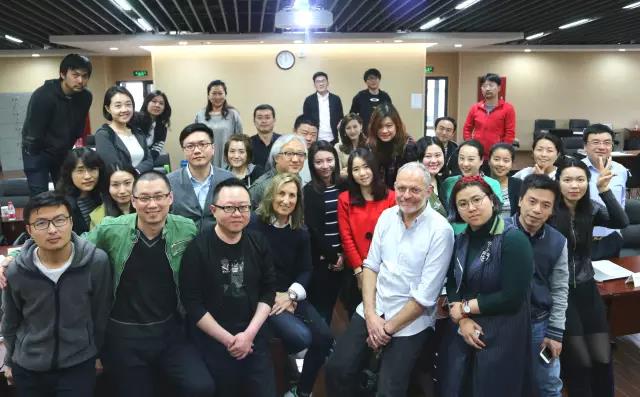
The directing workshop, which started on June 19th and concluded on August 16th, encompasses the skills in directing, casting, screenwriting, cinematography and editing. The first month of the workshop in at USC SCA in LA, and the second month is in Shanghai, where the participants made short films based on the scripts developed during the course in LA. The intensive directing class, in its first edition, recruited 14 Chinese directors from Beijing, Shanghai, Wuhan and Guangzhou. One third of the group are active working professionals in video-production, commercials, film and TV. Throughout the four weeks in LA, each student had to do video assignments each week, from non-dialogue scene to the remaking of an existing clip. Towards the second half of the program, each student’s short-film project went into production, and each had a complete film at the end.

Both workshops adopt an interactive pedagogy to bring out the best ideas from the creators, protect their integrity as storytellers, and push them to embrace uncertainties. The faculty of USC SCA boasted a profound worldview and quick understanding of individuals from different backgrounds. In both workshops, the instructors would come in fully prepared, having read or viewed the assignments thoroughly, and offer precise and spot-on notes. The faculty did not enforce any of their thoughts on the students, but shared it with the trust that each could understand and learn from the experience they brought in, as well as be firm in their own choice and intuition. At the end of the program, each project turned out to be a solid story with its distinct voice.
Getting Practical in Universal Story-telling
After almost two years of trial and error, reflection and improvement, the ShanghaiTech-USC SCA collaboration has played an active role instrumental to a streak of productive outcomes. The 2015 writers have moved forward with their projects or launched their careers in Film and TV. BREAKING THE WAVES, one of the feature projects by Chi Zhang, was selected as one of the 10 Projects of Excellence of the Young Directors’ Section of the Project Market at the 2016 Shanghai International Film Festival. In 2016, the directing program partnered with SMG pictures to provide production help and cash sponsorship for the directors. 14 short film ideas were submitted and 10 received cash rewards. The short films, now all finished, are to be distributed online soon and being submitted to domestic and international film festivals.
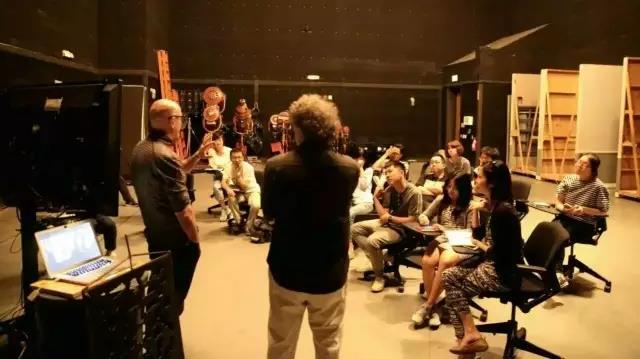
When having first heard of “the Hollywood protocol”, one may be both intrigued by and skeptical of how it may be applied to “the Chinese way” of filmmaking. As many lecturers from USC have made clear in the very beginning, what they are here for is to offer the “How-To”, not theories nor formulae. The step-by-step demonstration and question-answer interaction have dismantled the “magic” of filmmaking, but called for professionalism and expertise, skills and judgement to take time and risks, to continuously discover diverse projects that could flourish.
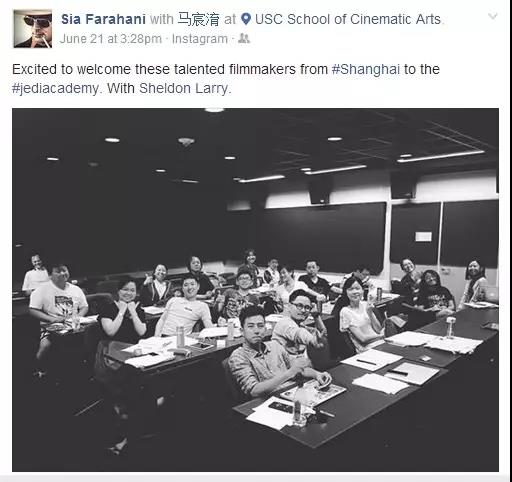
Film in its essence is an empathy-generating mechanism to generate emotional impact on the audience. In the writing class, the writers were encouraged to share their life experiences, as well as critique in a productive way each other’s work by terms of whether the reader has felt the same way as the writer wants to convey. The idea that stories revolve around characters is also confirmed in the directing class, where the directors have to discern from scripts what the characters “want” to achieve in each scene. The producers too are advised to think as “storytellers” and be honest and articulate with how they feel about the characters and the story. As storytellers you cannot presuppose that the others are different, but to believe that they fundamentally are able to understand. After all, filmmaking is no magic. It is simply about good stories, well told.

